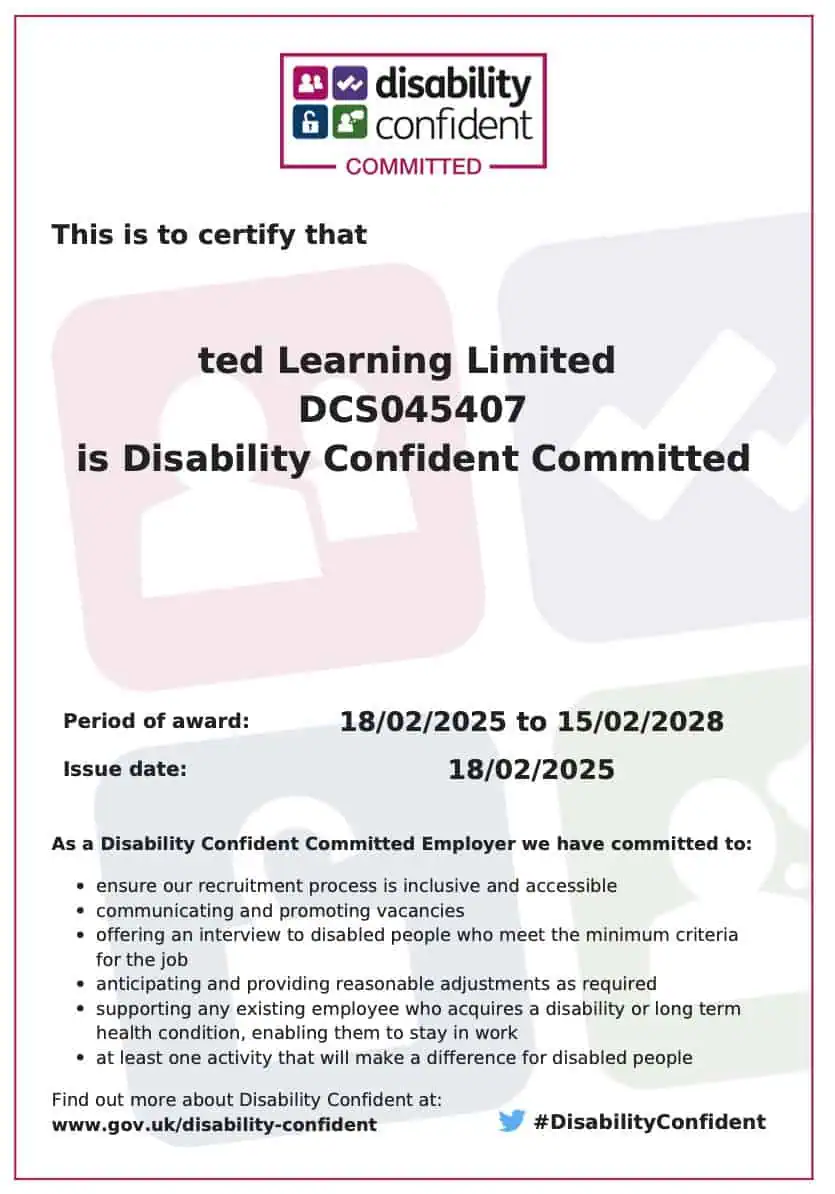5 Common Conflict Triggers – And How to Handle Them with Confidence
Conflict is a natural and often necessary part of working life. When handled constructively, it can spark innovation, strengthen relationships, and drive meaningful change. But when avoided or mismanaged, workplace conflict can erode trust, damage morale, and slow down performance. Understanding the root causes of conflict is the first step towards managing it effectively.
In this article, we explore five of the most common conflict triggers in professional environments and offer practical tips to handle each one with clarity and composure. Along the way, we’ll highlight how drama-based conflict training from ted Learning gives employees the chance to identify and respond to conflict in safe, immersive scenarios—before the heat of the moment hits.
1. Miscommunication and Assumptions
Misunderstandings can unravel even the most productive teams. Whether it’s an ambiguous email, an unclear brief, or a hastily relayed message, poor communication can cause confusion, frustration, and finger-pointing.
How to handle it:
- Prioritise clarity. Avoid jargon, be specific with expectations, and confirm shared understanding, especially in hybrid or asynchronous teams.
- Use active listening techniques—repeating back what you’ve heard or asking clarifying questions—to reduce assumptions.
- Check your tone. Text-based communication strips away nuance, so what feels neutral to one person might seem curt to another.
Drama-based training benefit:
Through live or video-based scenarios, participants witness how seemingly minor communication gaps escalate and practise reframing conversations in real time—skills that boost emotional intelligence and reduce workplace tension.
Reference: Harvard Business Review notes that poor listening habits are among the most common sources of misunderstanding and conflict in teams.
2. Unmet or Unclear Expectations
When people don’t know what’s expected of them—or believe that others aren’t meeting expectations—resentment builds. This may relate to performance, deadlines, responsibilities, or boundaries.
How to handle it:
- Establish expectations early and revisit them regularly. Don’t assume alignment—check in.
- Be explicit about boundaries, working styles, and deliverables. Encourage mutual accountability.
- When expectations aren’t met, raise it early. Letting it fester risks passive-aggression or open conflict.
Drama-based training benefit:
By observing or enacting characters who avoid, misstate or ignore expectations, learners gain insight into the emotional undercurrents and power dynamics that often remain hidden in everyday interactions.
Reference: According to a Society for Human Resource Management (SHRM) report, 49% of workplace conflict stems from unmet expectations around roles and responsibilities.
3. Clashes in Personality or Work Style
Some people thrive on collaboration, others prefer independence. Some are detail-oriented, others think in big-picture terms. These differences aren’t inherently bad—but when they go unacknowledged or unmanaged, they can spark conflict.
How to handle it:
- Build awareness of working styles using tools like DISC, MBTI, or StrengthsFinder.
- Practice curiosity rather than judgment. Differences in approach are opportunities to complement one another, not compete.
- Don’t take differences personally. Establish shared goals and adapt behaviours where possible.
Drama-based training benefit:
When participants roleplay with personas very unlike their own, it fosters empathy and helps them develop the flexibility to work well with different temperaments—even under pressure.
Reference: A CPP Global study found that 85% of employees experience personality-related conflict at work, and 38% say this conflict has led to personal insults or attacks.
4. Competing Priorities and Pressures
In fast-paced environments, departments often have conflicting KPIs. Sales wants quick turnaround; compliance wants careful checks. One team’s urgency can feel like another team’s overload.
How to handle it:
- Align on the bigger picture. Remind teams of the shared mission so trade-offs feel purposeful rather than punitive.
- Use collaborative planning tools and cross-functional stand-ups to surface and resolve tension points early.
- Recognise systemic issues. If resource clashes are constant, escalate them to decision-makers rather than blaming individuals.
Drama-based training benefit:
Participants witness and act out high-stakes scenarios where multiple departments are pulling in different directions. These simulations reveal how stress affects behaviour and how to manage competing demands without spiralling into conflict.
Reference: The Chartered Management Institute highlights resource scarcity and unclear priorities as top drivers of conflict, especially in matrixed organisations.
5. Feedback and Performance Conversations
Feedback—especially when it’s critical—can be a flashpoint for defensiveness, denial, or disengagement. Poorly delivered feedback can feel like a personal attack; poorly received feedback can stall development.
How to handle it:
- Focus on behaviours, not identity. “You missed the deadline” is constructive; “You’re lazy” is not.
- Deliver feedback in private, with specific examples and a spirit of support.
- Invite reflection. Ask how the person sees the situation and what support they need to improve.
Drama-based training benefit:
Feedback scenes are some of the most powerful in drama-based learning. Watching emotional reactions unfold in real time—and rehearsing different ways to respond—builds confidence and equips learners with a toolkit for compassionate candour.
Reference: A Gallup study found that only 26% of employees strongly agree that feedback helps them improve—a sign that how feedback is given matters as much as what is said.
Why Practice Matters: Building Conflict Confidence with ted Learning
Recognising conflict triggers is one thing; responding constructively under pressure is another. That’s why experiential, drama-based learning is so effective. It enables people to step into conflict scenarios in a psychologically safe environment, observe emotional dynamics, and experiment with techniques that defuse tension rather than inflame it.
At ted Learning, our Resolving Conflict course is designed to help teams do just that. Through expertly scripted live or filmed interactions, facilitated reflection, and practical takeaways, learners leave with sharper self-awareness and actionable tools to navigate conflict confidently.
Whether you’re a team leader, HR professional, or simply someone who wants to improve how you handle challenging conversations, investing in conflict resolution training is not just good for morale—it’s good for business.
Ready to turn tension into transformation? Explore our Resolving Conflict training today and empower your team to communicate with courage and clarity.
About the Author
Download Our Full Brochure...
Discover more about how we can transform your workplace with our engaging, drama-based training solutions. Explore our full range of courses, from bite-sized learning to immersive programmes, creating lasting behavioural change.
Don’t miss out—download now and take the first step toward a more inclusive, high-performing workplace!
© 2019-2025 ted Learning Limited
ted Learning Limited is not affiliated with or endorsed by TED Conferences LLC, TED Talks, TEDx, or TED-Ed. Any references to ‘ted’ on this website refer solely to ted Learning Limited, a separate and independent UK-based organisation specialising in drama-based learning & workplace training.
NAVIGATION
POLICIES
CONTACT
ted Learning Limited
Registered Office First Floor, 85 Great Portland Street, London, W1W 7LT
Company number 12396710
Company No. 12647309 VAT No. 350-1579-16



